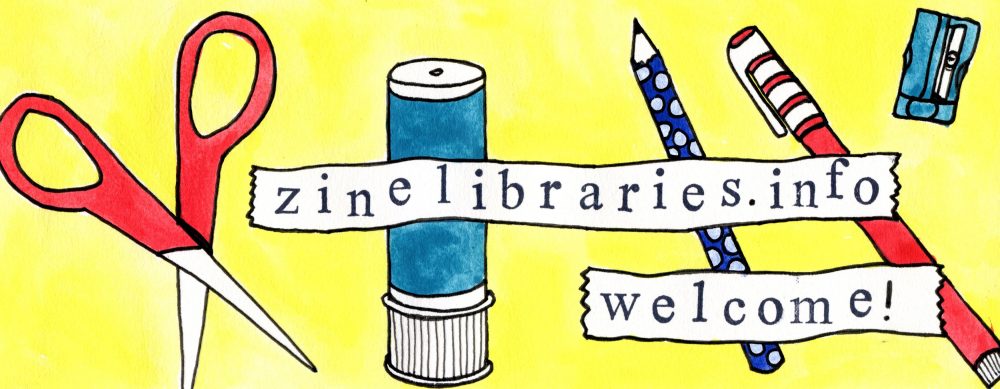Contributed by Milo Miller
I feel like this is a conversation that keeps happening over and over within zinester and zinelib communities, but it’s one that’s timeless. For some of us, we kind of know it inherently, but it’s always good for a refresher and to get new eyes, ears, and typewriters clacking about it. So, presented in listicle format, it’s Why Make Zines, Spring 2017 edition:
1) Making zines is relatively easy. There is no special knowledge needed, not a lot of hi-tech wizardry that takes days, months, and years to learn. If you can make a mark on paper with your writing implement of choice, you can make a zine.
2) Zinemakers own the whole production and distribution process. From a seed of an idea to a fruit-bearing tree of a zine, we are beholden to only ourselves. Which means that we have final say on the writing, drawing, illustrating, cut-and-pasting, copying, folding, stapling, and distribution. While it might seem labor-intensive to those who have never made zines before, it’s hugely advantageous.
3) Zines can be about ANYTHING. Because of #2, there’s no limits as to what can go into a zine. Which is part of why we make them. We can and do write about all sorts of topics – things that are challenging, or sexy, or political, or just silly and fun – without fear of being censored or even edited too hard.
4) You own and control your zines. Think about #2 and #3 combined, and what that means… In this space and time, usually someone else has SOME stake in how media gets out in the world. They own the publishing platforms, and are making money off your work. Facebook, Tumblr, Google/Blogger, YouTube, Twitter, etc… When you use them for getting your work and ideas out in the world, you’re beholden to them, and they’re selling ads and making revenue off you. And if they don’t like what you say or post, they may just delete your content, or freeze/erase your account. Not so with zines.
5) Making things can feel really good, and storytelling can be hella cathartic… And not everyone can (or wants to) knit, have bebes, or bake bread from scratch. But to catch those good, creative feels, making zines is an easy way to go. It’s “self-care” that’s not about consumption.
6) Making zines and trading them, selling them at zine fests, or through your Etsy/indy book store/distro is a great way of getting mail. Who doesn’t love mail covered in stickers and washi tape?
7) So, I’m not sure how it works for hetero-cis-male zine makers, but for the rest of us, making zines is a good way of making/expanding friend and tribal networks. I mean, really, now… most of my closest friends are zinesters (and zine librarians!)
8) I believe that we all have things to teach and learn. At QZAP, when we offer internships, we ask our interns to make zines, and specifically we ask them to make a mini-zine that “teaches somebody something.” Which means, for us, that we’ve got a huge folder with mini zines that teach how to do the dishes, put on condoms, change bike tyres, etc. So, reason #8 on why to make zines is to teach somebody something.
9) It took us a little while to get here, but for me one of the real reasons to make zines is to tell stories. The stories of our lives. Our stories are tales of people who often are marginalized in some way. We don’t have access, we don’t have privilege. Or we have some, but that gets traded away in other ways. Because we’re queer, trans, and gender non-conforming. Because we’re women. Because we’re Black and Latinx and Asian and Indigenous. We need to make zines because our stories are important, and WE are important, and zines are a great way of sharing this import.
10) Do you really need any more reasons? Add your own in the comments!
This blog post was inspired by current political events and is part of a semi-occasional series on zines as resistance.








